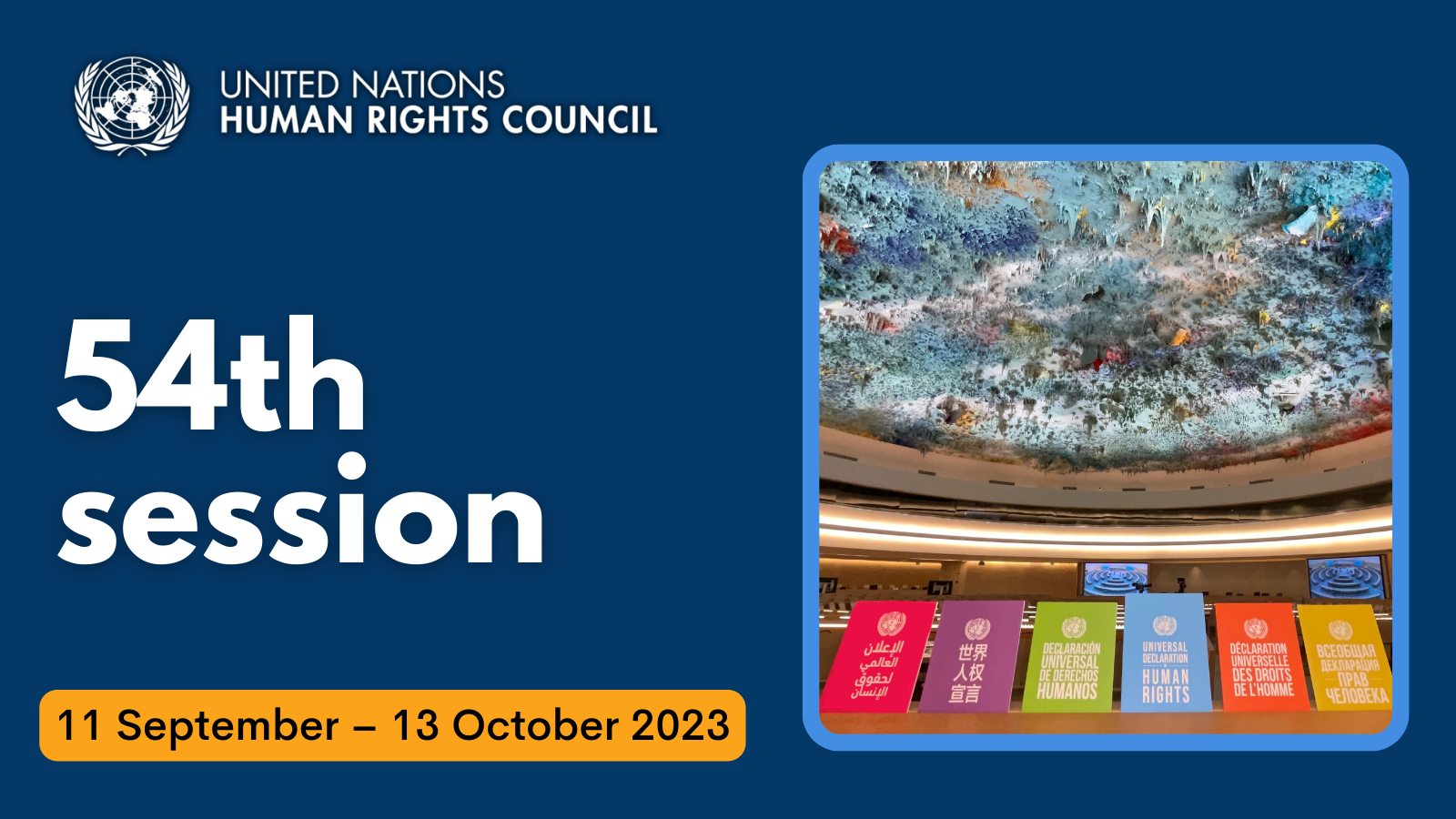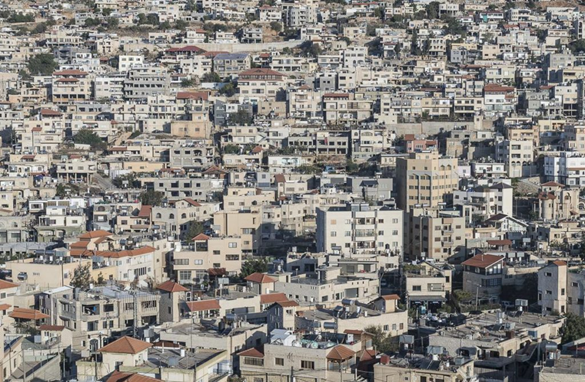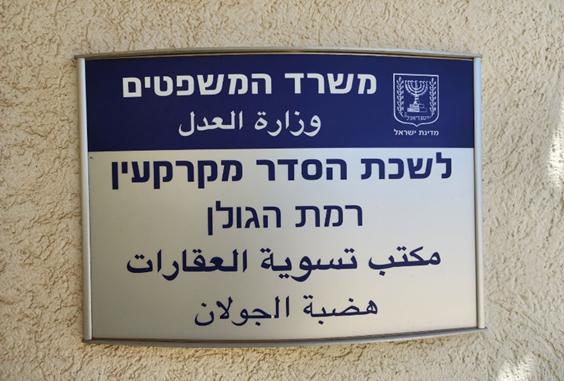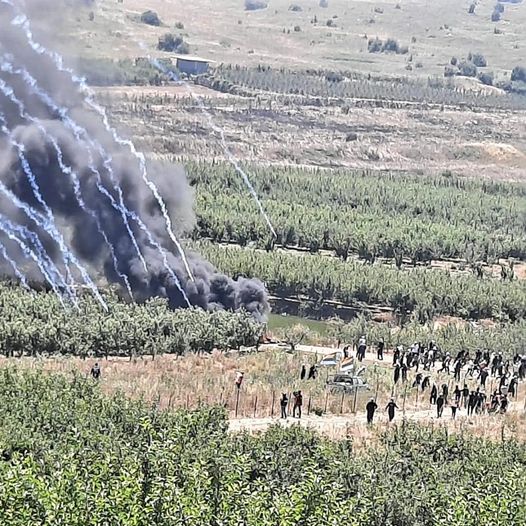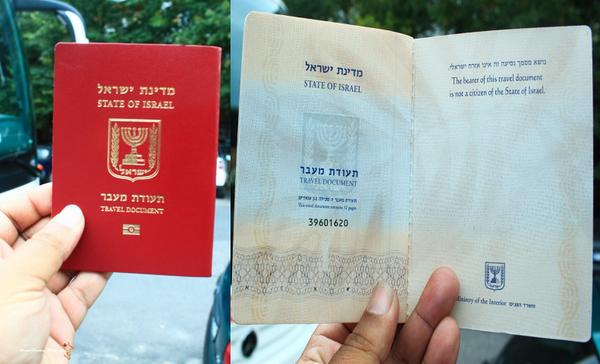
Majority of Syrians continue to refuse Israeli citizenship
Recently obtained data shows that only 6.5% of the Syrian population in the Golan has applied for Israeli citizenship since the start of the occupation in 1967. According to data obtained by Al-Marsad from the Israeli Population and Immigration Authority, overall, only 12% of the Syrian population (excluding Ghajar – see below) currently holds Israeli citizenship.
These revelations are timely given the local council elections which are planned in the Syrian villages for October this year. Only those with Israeli citizenship are allowed to stand as candidates, therefore excluding the vast majority of the population. The elections would be the first of their kind during the Israeli occupation of the Golan and are hotly debated by the Syrian population: a major concern being they are inherently undemocratic.
The data also counters claims that there is high demand for Israeli citizenship among Syrians in the Golan. In fact, the vast majority of the population continue to refuse it.
The data also shows the following:
- The percentage of people who hold Israeli citizenship in each of the remaining Syrian villages is as follows: Buqata 12.6%; Majdal Shams 11.6%; Masada 13.1%; Ein Qynia 10.2%; Ghajar 99.6%.
- Ghajar alone represents 47% of the overall number of Syrians who hold Israeli citizenship in the Golan. In 1981, its population was effectively forced to undergo mass naturalisation.[i] Consequently, almost all Ghajar residents hold Israeli citizenship and new-born children receive it automatically. Including Ghajar, the total number of Syrians holding Israeli citizenship in the Golan is 20%.
- 69% of the overall number of people who hold Israeli citizenship in the Golan do so as a result of birth, marriage or due to a change of residence. Any child born in the Golan to a parent with Israeli citizenship will automatically receive it. Further, given the large Druze population in the Golan, many Arab citizens of Israel from the Galilee who are Druze come to the Golan for marriage or to move home.
- The highest number of applications for Israeli citizenship occurred in 1981, reaching 365 applications, including 232 cases in Ghajar. Over a 32 year period, between 1982 and 2014, 915 people applied for Israeli citizenship, with an average of 27 applications per year. In 2015, the number of applicants for Israeli citizenship rose to 105. This increased to 181 applications in 2016, before decreasing to 106 in 2017. This number did not exceed 24 in the first quarter of this year.[ii]
The full data from the Israeli Population and Immigration Authority can be found below and by clicking here (in Hebrew).
Table 1 – Population of residents (holders of permanent or temporary residency status) and citizens (holders of Israeli citizenship) per village (as of 12 March 2018)
| Village | Citizens | Permanent / temporary residents | Total |
| Buqata | 829 | 5748 | 6577 |
| Majdal Shams | 1312 | 9938 | 11250 |
| Masada | 528 | 3487 | 4015 |
| Ghajar | 2610 | 9 | 2619 |
| Ein Qynia | 239 | 2094 | 2333 |
| Total | 5518 | 21276 | 26794 |
Table 2 – Residents who obtained Israeli citizenship according to village and year (as of 12 March 2018)
| Year citizenship was granted | Buqata | Majdal Shams | Masada | Ghajar | Ein Qynia | Total |
| 1951 | 1 | 1 | ||||
| 1963 | 3 | 3 | ||||
| 1964 | 4 | 1 | 5 | |||
| 1967 | 1 | 1 | ||||
| 1969 | 1 | 1 | ||||
| 1976 | 1 | 1 | 2 | |||
| 1977 | 1 | 1 | ||||
| 1978 | 1 | 1 | ||||
| 1979 | 3 | 1 | 4 | |||
| 1980 | 6 | 4 | 2 | 40 | 52 | |
| 1981 | 66 | 41 | 19 | 232 | 7 | 365 |
| 1982 | 16 | 16 | 3 | 1 | 36 | |
| 1983 | 11 | 15 | 14 | 1 | 41 | |
| 1984 | 5 | 17 | 1 | 23 | ||
| 1985 | 4 | 10 | 2 | 22 | 4 | 42 |
| 1986 | 14 | 11 | 6 | 52 | 1 | 84 |
| 1987 | 6 | 14 | 9 | 45 | 5 | 79 |
| 1988 | 18 | 12 | 7 | 43 | 2 | 82 |
| 1989 | 17 | 14 | 4 | 31 | 2 | 68 |
| 1990 | 11 | 14 | 6 | 28 | 2 | 61 |
| 1991 | 4 | 11 | 3 | 1 | 3 | 22 |
| 1992 | 3 | 13 | 6 | 5 | 27 | |
| 1993 | 7 | 9 | 3 | 1 | 1 | 21 |
| 1994 | 10 | 10 | 4 | 4 | 3 | 31 |
| 1995 | 4 | 7 | 8 | 3 | 22 | |
| 1996 | 7 | 7 | 8 | 2 | 2 | 26 |
| 1997 | 11 | 5 | 8 | 1 | 1 | 26 |
| 1998 | 1 | 4 | 2 | 3 | 2 | 12 |
| 1999 | 1 | 1 | ||||
| 2000 | 1 | 2 | 1 | 8 | 12 | |
| 2001 | 3 | 3 | ||||
| 2002 | 3 | 1 | 4 | |||
| 2003 | 1 | 1 | ||||
| 2004 | 1 | 14 | 2 | 4 | 21 | |
| 2005 | 2 | 16 | 1 | 19 | ||
| 2006 | 4 | 9 | 6 | 2 | 21 | |
| 2007 | 3 | 14 | 8 | 25 | ||
| 2008 | 2 | 1 | 1 | 4 | ||
| 2009 | 3 | 4 | 1 | 1 | 9 | |
| 2010 | 5 | 2 | 7 | |||
| 2011 | 3 | 7 | 8 | 18 | ||
| 2012 | 2 | 13 | 15 | |||
| 2013 | 3 | 5 | 4 | 1 | 3 | 16 |
| 2014 | 7 | 20 | 5 | 4 | 36 | |
| 2015 | 14 | 72 | 11 | 8 | 105 | |
| 2016 | 16 | 120 | 28 | 4 | 13 | 181 |
| 2017 | 26 | 51 | 20 | 1 | 8 | 106 |
| 2018 | 8 | 9 | 7 | 24 | ||
| Total | 329 | 608 | 219 | 534 | 77 | 1767 |
Additional findings:
- During the last 50 years – from 1967 until March 2018 – the number of people who applied for Israeli citizenship (including living and deceased) is 1758, or 6.5% of the current population.
- Of the current total number of people who hold Israeli citizenship, the number of people who individually applied for it during the occupation has not exceeded 31% (Buqata: 39%; Majdal Shams: 46%; Masada: 41%; Ein Qynia: 32%; Ghajar 20%[iii]).
- The number of people who have inherited Israeli citizenship from their parents is greater than the number of people who have applied for Israeli citizenship (including before and after 1981).
Notes
[i] During this period, the Israeli authorities were making significant efforts to impose Israeli citizenship on Syrians in the Golan. Ghajar was cut off from the other Syrian villages by the Israeli military and the villages’ collective efforts to resist the imposition of citizenship. Eventually Ghajar’s village leader, who effectively held sole power, acquiesced to pressure from the Israeli authorities and decided that village residents should accept Israeli citizenship.
[ii] Al-Marsad is currently analysing newly obtained data in order to understand why there was an increase in applications in 2015, 2016 and 2017.
[iii] This figure represents individual citizenship applications, not the mass naturalisation process that took place in Ghajar in the 1980s.
Releated Posts
